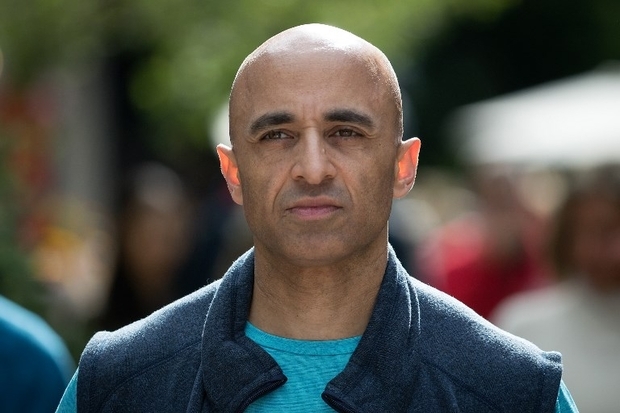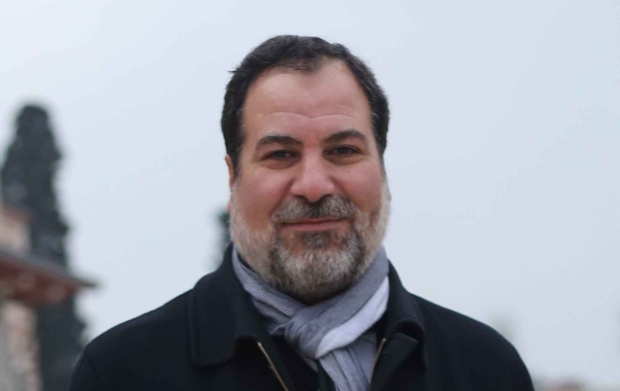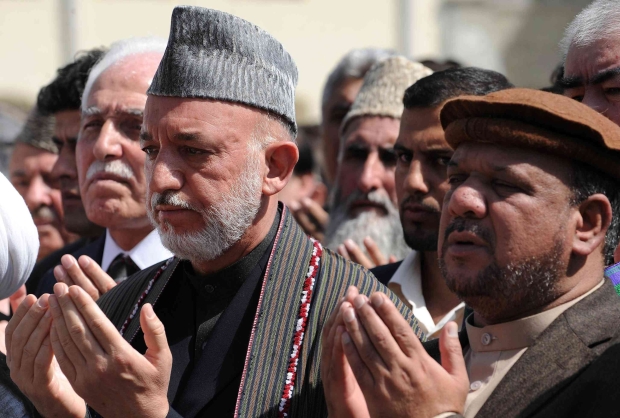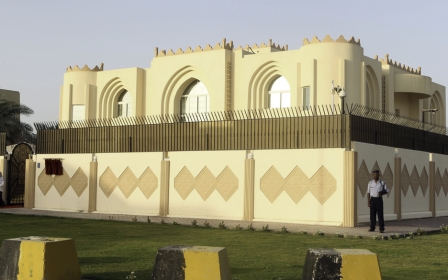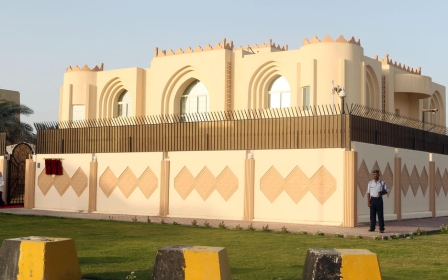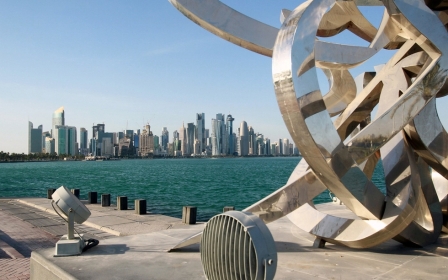Saudi Arabia tried to host Taliban office, says former mujahidin
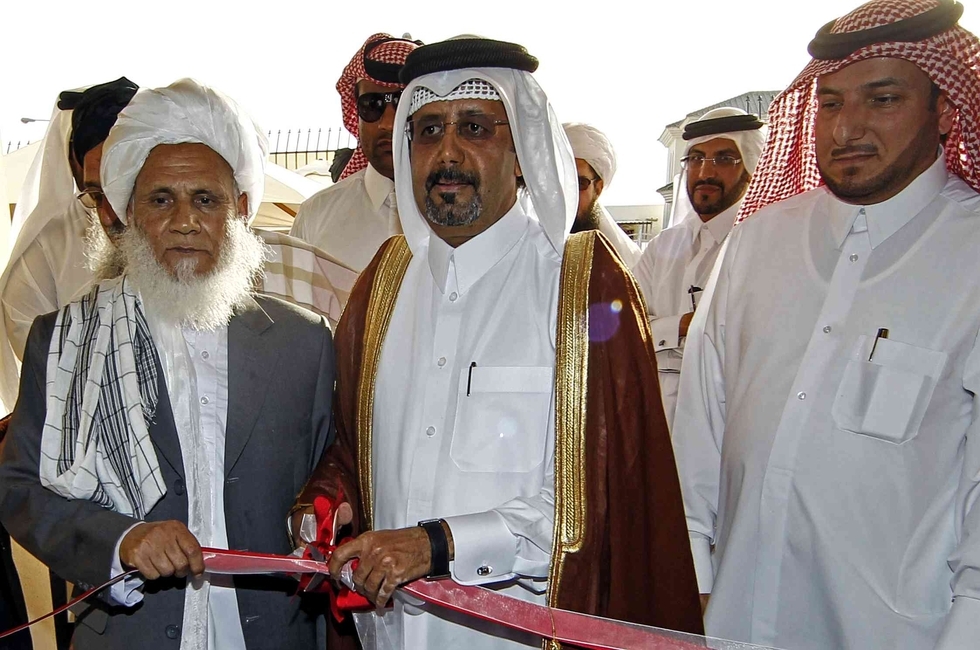
Saudi Arabia tried to host a liaison office for the Taliban, a former mujahidin fighter who was key to creating the peace process in Afghanistan has told Middle East Eye.
Abdullah Anas also said he is bewildered by claims from the UAE and its allies in Riyadh that Qatar supports Islamic extremism by hosting the Taliban in Doha.
On 26 July, Yousef al-Otaiba, the UAE’s ambassador to the US, said: “I don’t think it is a coincidence that inside Doha you have the Hamas leadership, you have a Taliban embassy, you have the Muslim Brotherhood leadership.”
The comments come as part of the long-standing criticism of Qatar, which has been led by Gulf capitals including Riyadh.
“There were also some rounds in the Emirates. So if Qatar is accused of hosting terrorists, someone hosted the same ‘terrorists’ before this.”
Anas should know. It was his idea to start the process with a series of visits he made to Afghanistan and then to Saudi Arabia from 2006 to 2008.
There were also some rounds in the Emirates. So if Qatar is accused of hosting terrorists, someone hosted the same ‘terrorists’ before this
- Abdullah Anas
During that time he engaged the active support and cooperation not only of Hamid Karzai, then president of Afghanistan, but also Prince Muqrin, then head of Saudi intelligence and, eventually, the late King Abdullah.
The former mujahidin turned Afghan mediator had more than one meeting with the head of Saudi intelligence.
Anas said: “I found myself face to face with the head of intelligence of Saudi, Prince Muqrin [director general of al Mukhabarat al a’amah]. He said to me: ‘I heard something of your opinion that Afghanistan is going nowhere, suffering from a meaningless war. Can you update me? I want to hear from you.’
“For me it was a golden opportunity to explain to a decision-maker. So we had more than one meeting in May, June, July 2007.”
Another kind of jihad
Anas’s peace mission started in 2006. An Algerian, he left Afghanistan in 1993, having spent 10 years fighting the Soviet army alongside Ahmed Shah Massoud.
His father-in-law, Sheikh Abdullah Azzam, co-founded the Afghan Services Bureau (the Maktab al-Khidamat or MAK) along with Osama bin Laden . The MAK raised funds for, and recruited, foreign mujahidin for the war against the Soviets.
But the war in Afghanistan lost all meaning for Anas after 9/11, fed as it was by two narratives that made no sense to Afghanis: George Bush’s war on terror; and bin Laden’s jihad against the crusaders.
“I saw two mothers crying in my mind’s eye,” said Anas, “one in Afghanistan because her son was returned in a coffin, and another mother crying in Europe over her son who was coming back in a coffin.
“Neither mother knew why their children died. I am sure if you ask a woman in Afghanistan whether she knows al-Qaeda or Osama bin Laden, the answer would be: ‘Who is this? Is this some sort of food?’
“This same mother in Europe or United States, if you ask her: ‘Do you know what this war on terror is about?’ She would not have a clue.”
Anas revealed that 15 hours before his assassination years earlier in November 1989, Azzam was trying to persuade the leaders of Afghanistan, Burhanuddin Rabbani, Gulbuddin Hekmatyar and Abdul Rasul Sayyaf, to sign a unity agreement.
Anas said: “That means that Sheikh Abdullah Azzam was supporting jihad in Afghanistan but at the same time he was focusing on reconciliation.”
'I had delivered the idea, but what next?'
Anas’s peace odyssey started in the room of the Afghan military attache in London, Colonel Ahmad Muslim Hayat, an old comrade in arms. They were watching Asadullah Khaled, the governor of Kandahar, being interviewed on Al Jazeera after a suicide bomb attack. Ten days later, in December 2006, Anas visited the governor, who in turn introduced him to Abdul Qayyum Karzai, the elder brother of the president.
Qayyum Karzai told Anas: “You Arabs are part of our liberation. Your blood is on every mountain and in every village and now you are coming to launch a peace jihad. I will do what I can to help.” A long meeting with the president followed.
Anas found he had unique qualities for the mediation mission he was about to launch. All his former fellow fighters held positions of power in Kabul, including the head of the parliament, the minister of interior and the head of intelligence.
But Anas also recognised the so-called “reconciled” Taliban - the leaders who had just been released from Guantanamo and were now resident in Kabul. All revered his late father-in-law.
Everyone agreed with him that the war was going nowhere. They agreed on the need for reconciliation and that in the process, all factions had to be involved, including the government, the former mujahidin and both the “reconciled” wings of the Taliban and its leadership in the mountains.
He said: “I had delivered the idea, but what next? I was not a state. If these people were to meet, who could deliver the meetings, provide the airport, the visas, security? These were all out of my control.”
He discounted both Pakistan and Iran as possible locations for talks, because each neighbour of Afghanistan had their own agenda.
“That is how I found myself knocking on the doors of the Saudis,” he said of his first visit in May 2007.
Saudi involvement
Anas started with Saudi veterans from the Afghan war who he knew. One of them recommended a lawyer, Mansour Saleh Khnaizan, to whom Anas began to explain his mission. Khnaizan in turn remembered hearing Anas talk in Peshawar about the need for the mujahidin to stay united.
Anas then took Khnaizan to Afghanistan and introduced him to his contacts, from Qayyum Karzai downwards. Khnaizan became convinced that a peace deal was possible and reported back to the royal palace in Riyadh.
But there was one condition: the Afghan leaders were to be invited to Mecca for Hajj, after Ramadan in 2008.
The so-called Mecca talks leaked to the media but went ahead anyway. After that, Anas went to the Emirates, accompanied by Qayyum Karzai, and, he said, “met with some levels of the Taliban there”.
Around 2011, Anas sensed he was being cut out of the process. The Arab Spring had broken out and Rabbani, the first head of the newly established High Peace Council in Kabul, had been assassinated. The Taliban had been split by the death of Mullah Omar. By the time the office of the Taliban was set up in Doha, Anas was disconnected.
“No one sought my advice, despite the fact that I knew the representative of the Taliban in Doha. I met in Europe, but I did not become part of the process. I still believe that reconciliation can be achieved in Afghanistan, but this has to be achieved internally.”
Riyadh assigned role by London, Washington
Anas’s account has been verified by a second source, who said that Qatar opened the liaison office for the Taliban in June 2013, after Saudi failed to establish an effective mechanism for liaison and communication.
The source said that Riyadh was assigned the task during the terms of the British prime minister Gordon Brown and US President George W Bush. Khnaizan, the source said, helped Karzai’s brother Qayyum make a trip to Dubai where he opened bank accounts.
Britain and the US only turned to Qatar to liaise with the Taliban because of the failure of the Saudis, the source claimed
Britain and the US only turned to Qatar to liaise with the Taliban because of the failure of the Saudis, the source claimed.
The New York Times published leaked emails from the Emirati ambassador to Washington Yousef al-Otaiba which revealed that the UAE had originally sought to host the Taliban liaison office.
Otaiba sought to rebut the article in a letter to the New York Times. He confirmed that the UAE had been been prepared to host the Taliban but claimed they had imposed three conditions - that the Taliban denounce al-Qaeda; that they recognise the Afghan constitution; and that the Taliban must lay down their weapons. This is contradicted by MEE sources.
Anas knows one thing. Somewhere along the line, the governments he attempted to bring in to the process ruined it with their own agendas.
“I recognised later on, even though the words ‘reconciliation’ or ‘peace talks’ were accepted by all, that [that] does not mean they wanted real peace talks. I recognise the agendas of politicians and governments. Even though they accept the principle, in reality they were not necessarily working for the peace I want.”
Anas’s book about his experiences, The Mountains: My Life in the Afghan Jihad, is due to be published shortly.
Middle East Eye propose une couverture et une analyse indépendantes et incomparables du Moyen-Orient, de l’Afrique du Nord et d’autres régions du monde. Pour en savoir plus sur la reprise de ce contenu et les frais qui s’appliquent, veuillez remplir ce formulaire [en anglais]. Pour en savoir plus sur MEE, cliquez ici [en anglais].


